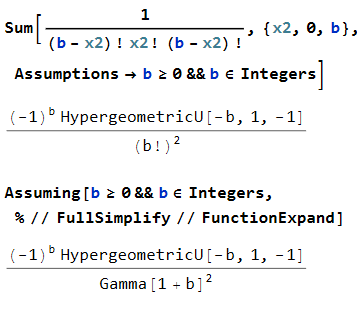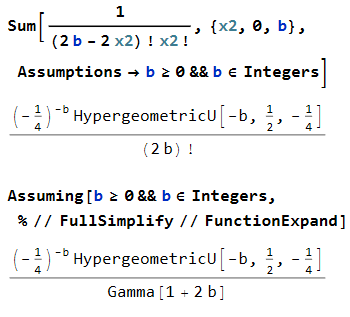I'm trying to simplify the sum $$ \sum_{\vec x \in (\mathbb{N}_0)^n: M\vec x = \vec b} \prod_i \frac{(a_i)^{x_i}}{x_i!}, $$ where $M$ is a $\mathbb{N}_0$-valued $m\times n$ matrix, $\vec b$ is $\mathbb{N}_0$-valued length-$m$ vector, and $a_i$ are real numbers. In my specific use case (if that makes it simpler by any chance), the $a_i$ are 4th roots of unity, i.e., $1$, $i$, $-1$, or $-i$, and the set of $\vec x$ fulfilling $M\vec x=\vec b$ is finite.
I found using Mathematica that for a special case of this, we have the very simple formula $$ \sum_{x_1, x_2: x_1+x_2=y} \frac{a^{x_1} b^{x_2}}{x_1!x_2!} = \frac{(a+b)^y}{y!}. $$ This way we can get rid of one variable $x_i$ which is involved in only one constraint in $M$. I thought maybe one could do some sort of Gaussian elimination on $M$ to use this for solving the general case, but this is only a vague idea so far.


